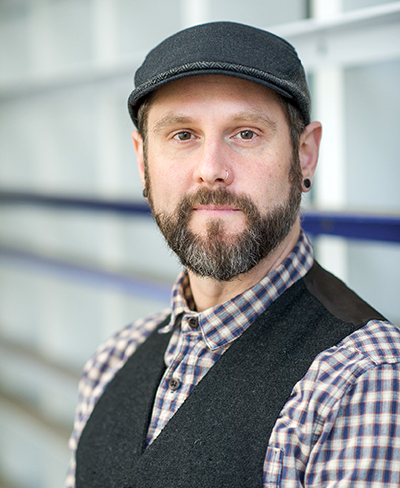

We recently caught up with Dr. Thrush for a faculty member’s perspective on leading a Global Seminar.
Have you ever taught this course before?
No – this is our first time. It’s based on a multi-year research project that will be coming out in book form next fall, focusing on five hundred (and then some) years of Indigenous travel (willing and otherwise) to London.
Why did you choose to teach “In Search of Indigenous London” as a Global Seminar?
I wanted to support First Nations & Indigenous Studies as they continue to expand their programs, and this seemed like such an obvious opportunity to bring my own research to life, offer an exciting opportunity to FNIS majors, and continue the work of extending the zone and influence of Indigenous studies.
As the trip to London and the UK approaches, what are you most looking forward to?
One of the things I love about London is the way that so many different historical layers are visible in the same place, and then to be able to approach it all in this radically different way and bring the city’s Indigenous past alive. London is really a remarkable place to engage any kind of history: the past feels really immediate there, and not in any way divorced from the present; it’s all piled up together in the very form of the city.
What are you dreading?
Trying to get twelve to fifteen people on and off the Tube successfully.
As a faculty member, what are you looking to get out of this experience?
In a way, this course allows me to “ground truth” one of the main claims of my research: that we can and should think of London as a ground of Indigenous presence in both the past and the future. It’s also a chance for me to see the city through the eyes of much younger scholars who are still figuring out their relationship with history.
What about the Global Seminar development process surprised you?
I’ve been really impressed with how easy it’s been – the staff have been super helpful and it’s all felt quite seamless, really.
Why?
I’d never really considered doing a study abroad course before because the administrative pieces all felt very daunting. But having an office on-campus to handle much of the bureaucratic and logistical side, allowing me to focus on the content and the experience, has been great.
What’s the reaction like when people find out that you’re leading the course in this way?
I can’t tell you how many offers I’ve received from people who are willing to be my teaching assistant! I think people are genuinely intrigued by the idea of “doing” Indigenous studies at the so-called centre of empire, a place they don’t usually think about in those terms.
What’s a useful piece of advice for faculty who are considering leading a Global Seminar?
Dream big and get in touch with staff early.
What’s one thing you want students to “pack” with them in preparation for this course?
I want them to bring their whole selves. This is not purely an intellectual exercise. We will be encountering difficult stories, sites of trauma, and even, in some cases, graves. I’ve invited the students I’ve talked to about the program to bring whatever they need with them to engage this history as fully human beings. This is more than just a class; it is a reconnection of histories to the present, and a claiming of space and place in support of the ongoing struggles of Indigenous peoples.
Read the original interview here.


